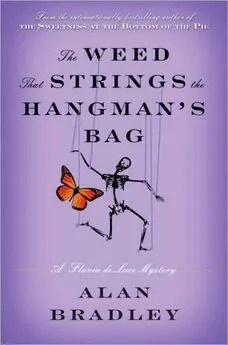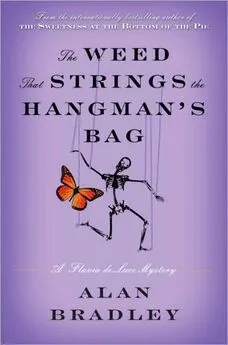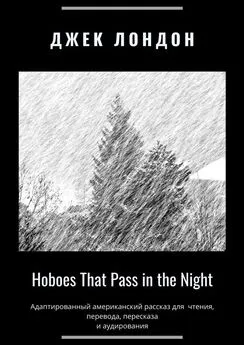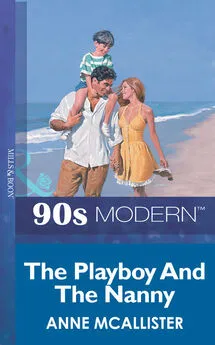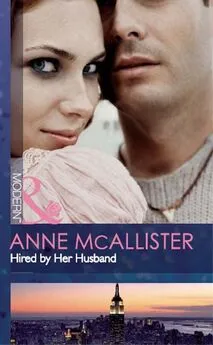Anne McAllister - The Night that Changed Everything
- Название:The Night that Changed Everything
- Автор:
- Жанр:
- Издательство:неизвестно
- Год:неизвестен
- ISBN:нет данных
- Рейтинг:
- Избранное:Добавить в избранное
-
Отзывы:
-
Ваша оценка:
Anne McAllister - The Night that Changed Everything краткое содержание
The Night that Changed Everything - читать онлайн бесплатно ознакомительный отрывок
Интервал:
Закладка:
He wanted more of those smiles. More of her.
“Let me show you my renovations,” he said, and he began to talk about the structure of the building. Several sentences later he realized that she was staring at him, wide-eyed, and he stopped. “What?”
“You really know all this stuff?” She sounded amazed.
Nick laughed. “It’s what I do. My job. Why I’m here.”
“I thought … the wedding …”
“I didn’t come for the wedding. I came to restore the east tower.”
And suddenly the smile he’d been hoping for lit her face. “How wonderful,” she exclaimed. “Show me. Tell me everything.”
He thought she might just be being polite, but as he turned on more lights and walked her through the main rooms, which were already finished, all the time telling her about the history of the place, explaining when it had originally been built and which parts were added on later, she asked eager, interested questions.
She didn’t endure his lecture as her sister had done, but demanded to know more. Of course, to be fair, he’d deliberately droned on when he’d described his work to Rhiannon. He took pains to interest her sister.
But it wasn’t long before he realized he needn’t have bothered. Edie was clearly interested in the castle and in the work he’d done on it. She had studied history in college, she told him. She’d thought she might be a teacher.
“A teacher? Far cry from being your mother’s business manager, isn’t it?”
Her lips twisted. “One of those times when life happened while I was making other plans.”
What plans? Nick wondered, but he didn’t ask as there was something in the expression on her face that told him to leave it alone. So instead he asked, “Did you ever want to go into acting?”
She shook her head. “Never. That’s not my world.”
“But you work in it every day.”
“In the business part of things. Not the glitz and glamour part. Not the movie star bit,” she said adamantly.
“You don’t like the ‘movie star bit’?”
“It’s not for me,” she said simply, then added, “it’s too difficult.”
“Acting?”
“I suppose that’s part of it. But I think really that it’s harder being real. Being honest. If you act all the time, who are you? Really? Do you even know?”
Her voice rose when she asked the questions and they didn’t sound rhetorical. Nick supposed, having a mother who was an icon of American film and screen, she’d probably given it considerable thought. Then, as if she decided she’d betrayed a bit too much emotion, Edie shrugged and said lightly, “I’m a behind the scenes person, that’s all.”
“Yeah. Me, too.” When she blinked, clearly surprised, Nick explained. “When I’m working on a building, the building is what matters.” He waved a hand to encompass the whole of the one he’d been working on. “Not who does the work.”
Edie looked thoughtful, then she nodded. “Yes. I see what you mean.” Then she ran an appreciative hand down one of the window casings. “You’ve done an amazing job. At least I guess you have. Honestly, it’s hard to tell where the old stuff ends and the new begins.”
“Exactly the way it’s supposed to be.”
“How do you start?”
“I case the joint,” he told her with a grin. “I go over it all with a fine-tooth comb, so to speak. I learn who built it and when and why. Then I live in it.”
“Hence the architectural renovations in your bedroom,” she said with a grin. “Seriously?”
“Seriously.” He pointed toward a door at the far end of the hall. “My digs.”
Her gaze followed his gesture. Rhiannon would doubtless have rubbed up against him and suggested, “Show me.”
Edie looked at the door, then turned back to him and asked, “When was the tower built?”
So Nick told her.
“It was a thirteenth century addition to the castle. It was designed to be a lookout and barracks for the soldiers who defended against the onrushing hordes.”
“Hordes?” Her eyes got wide. “There were hordes? It’s so small! Why would they bother?”
“The whole country was bigger back then. The royal family had more wealth and they had some good mountain valleys for cultivation. There are several natural springs as well as rivers. It would have made a nice prize for whoever could take it.” He grinned and shrugged. “But no one could.”
“I had no idea.”
“The Chamion family are survivors. They knew how to pit one enemy against another. They also knew how to make alliances and how to make friends. There’s lots of history here,” he went on as he led her through the finished rooms to a heavy oak door at the far end. He pushed it open to reveal a hall where there was substantial scaffolding. “We’re still working in here.”
There were tarps and sawhorses—his concession to modern working conditions—all over, along with piles of lumber. But the tools were all primitive, ones that thirteenth century carpenters, joiners and masons would have used. Edie headed straight for them. She asked about every one, made him explain how he used them, where he’d found them. She looked at him with admiration when he said he often made his own.
“A matter of necessity,” he said. “No old ones left.”
“And you do it all yourself?”
Nick laid a proprietary hand on one of the scaffolds. “I started it. I did the first rooms on my own so I had a good feel for things. Recently I’ve been working up in the tower and there are a couple of local craftsmen doing this.”
She walked around the room, noting where he’d replaced a joist. The new wood was evident. But she ran her finger over the chisel marks and shook her head. “It must take forever.”
“Which is why it took generations to build places like this.”
She smiled, then lifted her gaze from the wood to look at him again. He felt her gaze assessing him. “You look like such a ‘modern’ man,” she said. “It’s hard to imagine you spending your days doing this.”
His mouth quirked. “Well, I don’t usually wear a suit to work.”
“How did you get into it? Kids usually say they want to be a fireman or a cowboy.”
“I wanted to be an architect.”
“Of old buildings?”
He shrugged. “I like them.”
“Have you ever designed a new building?”
“Once,” he said curtly, turning away.
There was a moment’s silence. Then, “I’m sorry,” Edie said.
Nick shot her a quick glance from beneath drawn down brows. She was leaning against one of the worktables, her gentle eyes on him, looking incongruous and desirable, both at the same time. “Sorry about what?” he said gruffly.
“Getting too close.”
His frown deepened. “Close to what?”
“You.” She smiled faintly. “Asking about how you came to do this. What you had designed,” she added.
He felt an edginess between his shoulder blades. “It’s not important.” He picked up a chisel and balanced it on his palm, stared at it, then abruptly set it down again to look at her.
She looked back, her brows lifted a little. “I would have said it was very important,” she countered quietly.
She would have been right.
Now Nick rubbed the back of his neck, kneaded the muscles, but they remained tense. “It was,” he said tonelessly. It had changed his life.
This time she didn’t ask. She didn’t pry. She simply waited.
Nick shoved his hands into his trouser pockets, rocked back on his heels, stared into the middle distance, not at Edie.
“I designed a house,” he said at last, unsure why the words were coming out of his mouth. He didn’t talk about the house. Had never talked about it with anyone. But now he found himself saying, “I was getting married. I built it for my fiancée.” He said the words almost defiantly.
Edie made a small sound. Otherwise she didn’t move, didn’t speak.
“It was supposed to be the perfect house,” he went on, his tone as harsh as his feelings. He’d intended it to be his gift to her. He’d wanted it to be perfect. As perfect as she was.
Amy had laughed at that. “Don’t be silly,” she’d said. “I’m far from perfect.”
But he’d thought she was. Absolutely perfect in every way. She was certainly perfect for him.
So he’d made her tell him everything she’d ever dreamed of having in a house—the expansive picture windows looking out across Long Island Sound, the winding staircase, the second-story balcony overlooking the naturally landscaped pool. The massive stone fireplace, the island-centered kitchen, the three upstairs bedrooms—a suite for them and one each for the children they would have—he was determined they would all be exactly as she wanted them.
“Her heart’s desire,” he said bitterly now.
“But it wasn’t?” Edie ventured softly.
He shrugged. “She didn’t care. Oh, she was delighted about the house, thought it was a great idea. But mostly she just wanted to get married. And I kept putting it off. I wanted the house finished. I wanted it all just right.”
Not because he didn’t want to marry her. He had. But he’d wanted to give her the very best he had to offer. He’d thought it was worth waiting for.
He’d been wrong.
The inadequacy of that house compared to the time he could have had with her still gutted him. He ground his teeth, cracked his knuckles. Swallowed hard.
“What happened?” Edie asked quietly.
“She died.”
He said the words baldly. Forced himself to confront the mistake he’d made. He didn’t look at Edie. This wasn’t about her. It was about him. And Amy.
For a long moment Edie didn’t say anything, either. Nick wasn’t surprised. What, after all, was there to say?
He should have kept his own mouth shut. He couldn’t imagine what he’d been thinking, dragging out his private pain for a woman he’d known less than a couple of hours.
“Forget it,” he muttered. “I shouldn’t have said anything.”
“I asked.” She reached out, touched his arm. “I am so very sorry,” she told him.
A lot of people had said they were sorry. But Edie’s words didn’t sound like a platitude. He could hear the earnestness in her voice, and there was something so close to pain in her tone that it surprised him. He turned to look at her.
“You lost her,” Edie said, “and you lost your own future as well.”
“Yes.” It was something that no one else seemed to get. He wasn’t the one who had died, after all. He should just get on with his life. If they didn’t say it—and some did before many months had passed—he could see it in the way they looked at him, in the suggestions for dates, in the offers to set him up with eligible women.
“I understand,” she said.
He doubted it. “Thank you,” he said politely and looked away out the window.
“My husband died two years ago.”
Nick’s gaze snapped back, shocked, to meet hers. His “I’m sorry” felt as feeble and inadequate as a platitude now. “I didn’t know.”
“I don’t generally announce it,” Edie said lightly. Then she gave him a faint smile. “I don’t suppose you do, either.”
“No.” It had been, literally, years since he’d talked about Amy to anyone. Now he paused, considering. “That was why you were upset about Mona’s matchmaking?”
She thinks I need to start dating again. Nick remembered Edie’s earlier words. Remembered wondering about the again . Now he knew.
She hesitated, then nodded. “Yes.”
He understood. It made perfect sense. He didn’t look at her. He didn’t think she was looking at him. She was probably thinking about the husband she’d lost much more recently than he’d lost Amy.
Читать дальшеИнтервал:
Закладка:

